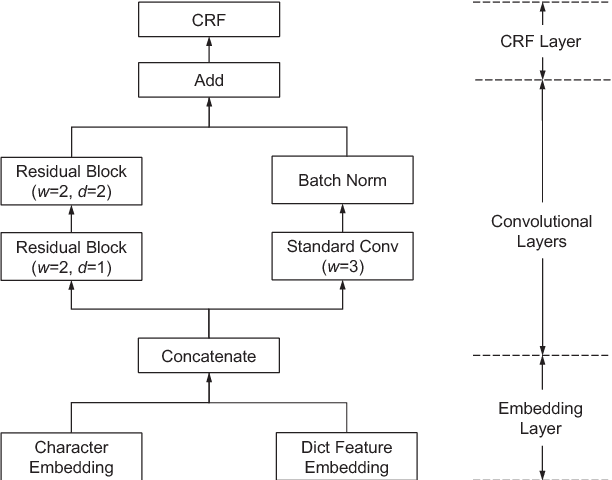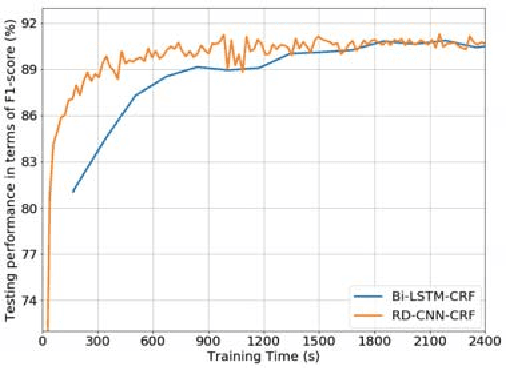Fast and Accurate Recognition of Chinese Clinical Named Entities with Residual Dilated Convolutions
Paper and Code
Aug 29, 2018



Clinical Named Entity Recognition (CNER) aims to identify and classify clinical terms such as diseases, symptoms, treatments, exams, and body parts in electronic health records, which is a fundamental and crucial task for clinical and translation research. In recent years, deep learning methods have achieved significant success in CNER tasks. However, these methods depend greatly on Recurrent Neural Networks (RNNs), which maintain a vector of hidden activations that are propagated through time, thus causing too much time to train models. In this paper, we propose a Residual Dilated Convolutional Neural Network with Conditional Random Field (RD-CNN-CRF) to solve the Chinese CNER. Specifically, Chinese characters and dictionary features are first projected into dense vector representations, then they are fed into the residual dilated convolutional neural network to capture contextual features. Finally, a conditional random field is employed to capture dependencies between neighboring tags. Computational results on the CCKS-2017 Task 2 benchmark dataset show that our proposed RD-CNN-CRF method competes favorably with state-of-the-art RNN-based methods both in terms of computational performance and training time.
 Add to Chrome
Add to Chrome Add to Firefox
Add to Firefox Add to Edge
Add to Edge